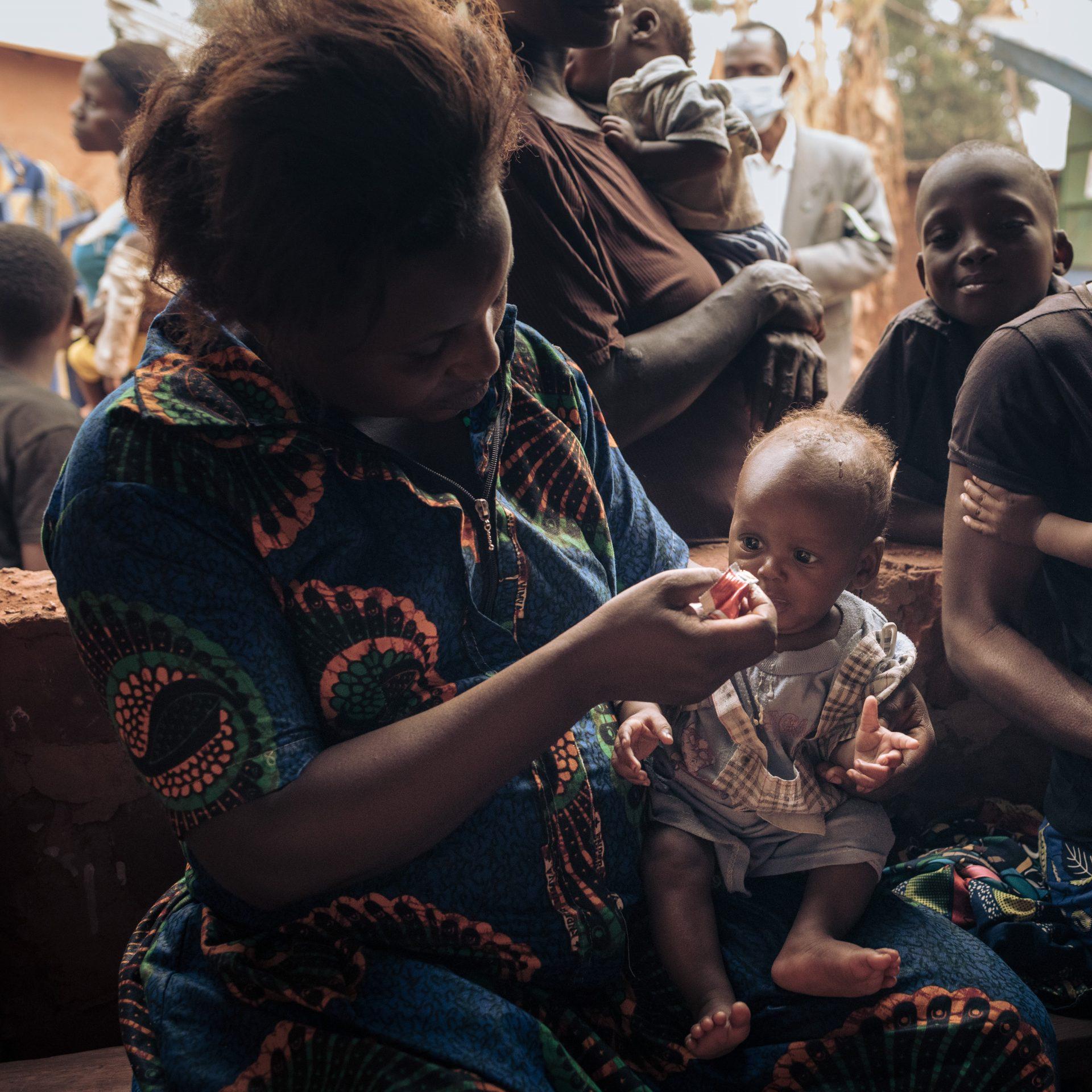
Humanitarian context
The human rights situation in the Democratic Republic of the Congo remains difficult. Internal clashes and poor government management contribute to a serious food crisis and internal displacement of 5.8 million people, the highest figure in the entire African continent. Over 100 armed groups operate in eastern Congo, and the introduction of martial law in North Kivu and Ituri provinces has facilitated abuses by government security forces.
In 2022, a quarter of the population of the Democratic Republic of the Congo – more than 26 million people – suffered from severe and acute food insecurity, and more than 6.4 million people suffered from acute undernutrition, mainly children under five years of age.
BENEFICIARIES
workers
Water, Sanitation and Hygiene
Nutrition
EXPATRIATES
NATIONAL
Our activity
In the Democratic Republic of the Congo, Action Against Hunger responds to a variety of emergencies related to nutrition, health, water, sanitation and hygiene, as well as conflict. We provide emergency food aid to displaced and insecure people in Ituri, deploying emergency teams across the country to assist in nutrition and health.
In 2022, we also responded to a measles epidemic. Our organization focused on gender and safety, implementing a comprehensive nutritional protection and security programme. In addition, we intensified our commitment to preventing sexual abuse and fighting fraud and corruption.
WHERE WE HELP
We help 24.5 million people each year. We work in 55 countries in Africa, Asia, Latin America and Europe, those most threatened by hunger.
EYEWITNESSES
DORCAS: "IF THERE WAS NO FREE CARE AT THE HEALTH CENTRE, THERE WOULD BE MANY DEATHS IN MY FAMILY"
In the Democratic Republic of the Congo (DRC), mothers like Dorcas strive to keep their children alive. In fact, 40% of children in the DRC currently suffer from hunger. Malnutrition is life-threatening, as it is the leading cause of child mortality here and is linked to almost half of all under-five deaths.
Dorcas lives in Mbuji-Mayi, the third largest city in the DRC. Before, people used to make a living mining diamonds, but when the big mining company collapsed, many people lost their jobs. In need of income, many tried to use their mining experience on a smaller scale. But ill-equipped and without adequate resources, some did not survive to tell the tale.
Dorcas' husband was one of them. He suffered a serious injury at work that left him bedridden, so Dorcas had to take care of the family and find food for her 7-month-old twins on almost no income.
"After my twins were born, I had to carry sacks of gravel to the river, it was my only way to earn money. I needed to transport at least ten sacks to obtain 2,500 Congolese francs [approximately 70 pence]. But that was not enough to feed the whole family," says Dorcas.
When her son Kabongo started suffering from fever and diarrhoea due to the lack of clean water, Dorcas took him to one of our health centres in the area. There, Kabongo was treated urgently and free meals were provided for Dorcas. "If there was no free care at the health centre, there would be many deaths in my family," Dorcas says gratefully.
Kabongo received therapeutic milk and a nutrient-packed peanut paste that helped him recover day by day. "When you have no source of income and prices go up, you can't buy basic necessities. And when you can't buy food, you and your family go hungry," explains Dr Prudence from the Mbuji-Mayi centre.
Thanks to the support of Action Against Hunger, Dr Prudence’s paediatric unit can treat malnourished children with therapeutic milk to help them recover and return home. The centre's emergency room also helps children with serious medical complications. As in the case of Kabongo, by treating children with the right treatment at the right time, we can stop life-threatening hunger in its tracks.
